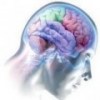New work by Minear & Shah shows that as little as 2 hours of practice can promote improvements in multitasking that generalize beyond the particular tasks trained. Specifically, they show that performance on individual tasks can be made more efficient while multitasking, but the efficiency of actually switching between them cannot. The data supporting this conclusion is fairly complex, but significantly adds to theoretical accounts to a number of previous studies showing that even the highest levels of cognitive processing (the so-called "executive functions") can be improved with practice.
Minear & Shah used three separate experiments to argue that task-switching training enhances the ability to stabilize performance following unexpected switches in task, that this is specific to training that requires unexpected switching, and that it generalizes to untrained tasks (all relative to a control group). As I note below, there's some alternative explanations to consider, but they generally all involve a real and transferable training effect in multitasking.
Here's the basic methodology used by Minear & Shah. In their first study, 96 young adults were assigned to one of three groups:
1) a "unpredictable switching" group (in which subjects were trained to switch unpredictably between tasks belonging to 3 different task pairs)
2) a "predictable switching" group (in which subjects were trained to switch tasks in each of 3 task pairs on every other trial)
3) a control group (in which subjects experienced the same tasks as groups 1 & 2 but were never asked to switch between them during a single block of trials).
All subjects underwent pre- and post-tests assessing switching ability under two conditions: a) when the switches were random, and b) when they were predictable. This pre- and post-test involved tasks that were not practiced during training by any group, to confirm that any improvements in groups 1 or 2 were due to a general improvement in task switching ability, and not specific improvements in the practiced tasks.
Relative to the control group, only those who practiced unpredictable switching showed significantly more improvement on the untrained task: importantly, this was specific to "mixing cost," and was specific to the unpredictable switching block in the post-test. Mixing cost is the slowing that subjects show when repeating a particular task in the context of task-switching, relative to repeating that task in a single-task situation. In contrast, there wasn't strong evidence for generalizable improvements in actually switching between tasks (relative to repeating them) in either the predictable or unpredictable post-test blocks.
A second study (with an additional 75 young adults) used the same design with one exception: there was a 200ms interval inserted between when subjects were told which task to perform next and the onset of the task stimuli. This experiment replicated the results above: once again, the predictable switching group showed no training effect relative to controls. Only the group trained on unpredictable switching showed a benefit relative to controls, and this was specific to mixing cost in the unpredictable switching condition. There was also a hint towards a benefit for them in the predictable switching posttest, although this failed to reach significance.
A third study with 48 young adults demonstrated that these switching improvements were not due to strategic improvements in subject's ability to process the cues - post-test improvements were just as great in a case where the type of cues changed at post-test as when they remained the same.
Critically, this third study also showed that the transferable improvement was due mostly to subjects speeding up on those trials that immediately followed a unexpected task-switch.
The authors conclude that attentional control, or more switching-specific "set-selection/decision processes" is probably the trainable aspect of task-switching, in the sense that attentional control stabilizes performance following an unexpected task switch, and that stability in post-switch performance is affected by training. They argue that attention switching paradigms should show training effects, and should show transfer from task-switching if attentional control, rather than switching-specific skills, are central to this training effect.
However, these effects could reflect relatively general improvements of "cue interpretation cost" - the slowing of reaction time observed when cues must be interpreted relative to when they directly repeat. This is known to constitute the bulk of switch costs in unpredictable switching paradigms. For example, subjects might better learn to use cues to speed their responses, which should yield benefits
a) only in unpredictable switching (cue interpretation is unnecessary in predictable switching),
b) equal benefits to both switch and nonswitch trials (meaning no difference in switch costs, calculated here as the difference between them), and
c) no change in the speed of single task blocks, since cue interpretation is unnecessary there, yielding a smaller post-training mixing cost (calculated as the difference between nonswitch and single task blocks).
Study 2 demonstrates that if this contributes to the observed effect, it is relatively general because the improvement transfers from pictorial to verbal cues.
Another concern is related to the non-adaptive nature of the training here, and how predictable switching might not yield sufficient challenge for training effects to emerge. Unpredictable switching may be more challenging, thereby encouraging more focus and attention from subjects, subsequently translating into a greater benefit.
While Minear & Shah have clearly demonstrated training-related improvement and transfer in task-switching in a very short amount of time (just 2 hours total!), it's also worth noting that a sizable switch cost (somewhere around 300ms) remains even after training. Mixing cost reduces to around 100ms - something like a 75% reduction in reaction time cost. While it may sound small to those in the "real world," these are relatively large effects for cognitive psychology.
